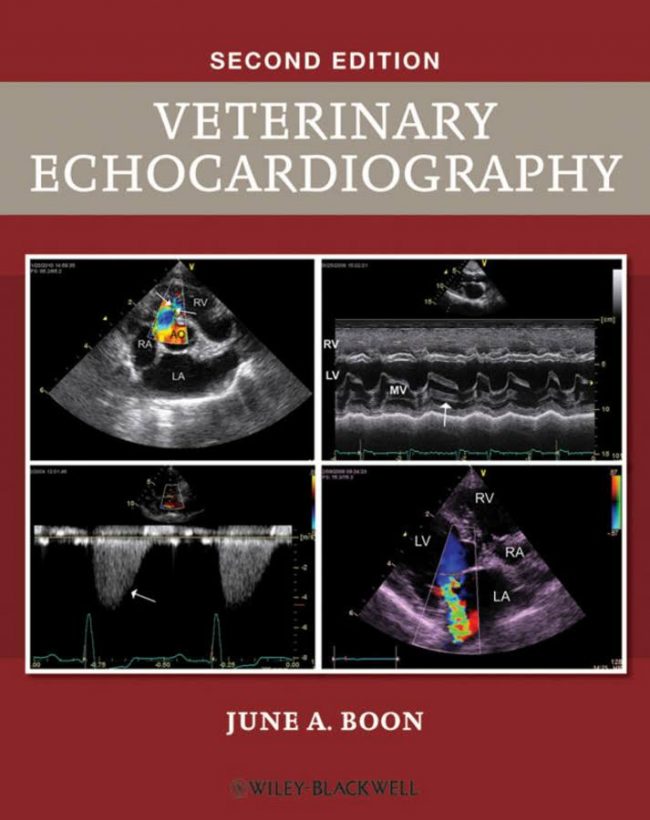Veterinary Echocardiography 2nd Edition PDF Download. When I started this project, I thought it would be easy. The first 20 years of veterinary echocardiography were done; I simply had to write about new developments over the past ten years. It was not so easy.
Veterinary Echocardiography 2nd Edition PDF
The past ten years have brought with it significant advances in technology including better transducers, tissue harmonic imaging, better color flow mapping, and color and spectral tissue Doppler imaging. The echocardiographic examination now provides so much more information than it did 10 years ago. The amount of information continues to grow exponentially – because of and thanks to the many cardiologists who have been trained, certified and working to expand our knowledge over this past decade.
The format of this edition is different from the previous one in the hope that it makes this book easier to use. Chapter 1, a necessary evil, still covers the pertinent physical principles of sound that allow us to use ultrasound as a diagnostic tool. Chapters 2 and 3 describe the two dimensional, m-mode and Doppler examinations. All imaging planes are described with instructions and pictures for obtaining these images. I have included images of common mistakes and directions for fixing them.
After all these years, I still find myself discovering little pearls of wisdom about obtaining and evaluating certain imaging planes. This is a skill that continuously develops, so don’t give up. With this in mind, I would like to acknowledge Dr. Jim Woods – creator of Woods’ Criteria – for reminding me that a study does not need to be perfect in order to obtain valuable information.
Assessment of the echocardiographic examination is covered in Chapter 4. This chapter describes how to measure, and interpret the ultrasound examination. It describes the application of each parameter in a general way. It also tells of the factors that influence their interpretation, factors like heart rates, age, blood pressure, preload and afterload. The chapters following this cover the echocardiographic features of the most common cardiac diseases seen in veterinary medicine. Elsevier’s Veterinary Assisting Textbook
Chapter 5 discusses acquired valvular diseases. Chapter 6 describes the features of systemic and pulmonary hypertension. Chapter 7 deals with all of the myopathies seen in animals. Pericardial effusion and cardiac masses are described in Chapter 8. Congenital shunts and stenotic lesions are covered in Chapters 9 and 10. I have as usual probably overdone the references that are included in each chapter.
Many offer viewpoints form the human side of echocardiography. I hope that this comprehensive reference list provides insight into the how and why of echocardiographic parameters and interpretation. I also hope that they spark some new ideas. I continue to learn every day, and this is what keeps me interested and loving what I do. As with the first edition, it is my sincere wish that this book provides a comprehensive reference and instruction manual for echocardiographers at all levels of experience.


This post contains broken links
there is no book available to download
Link Updated!